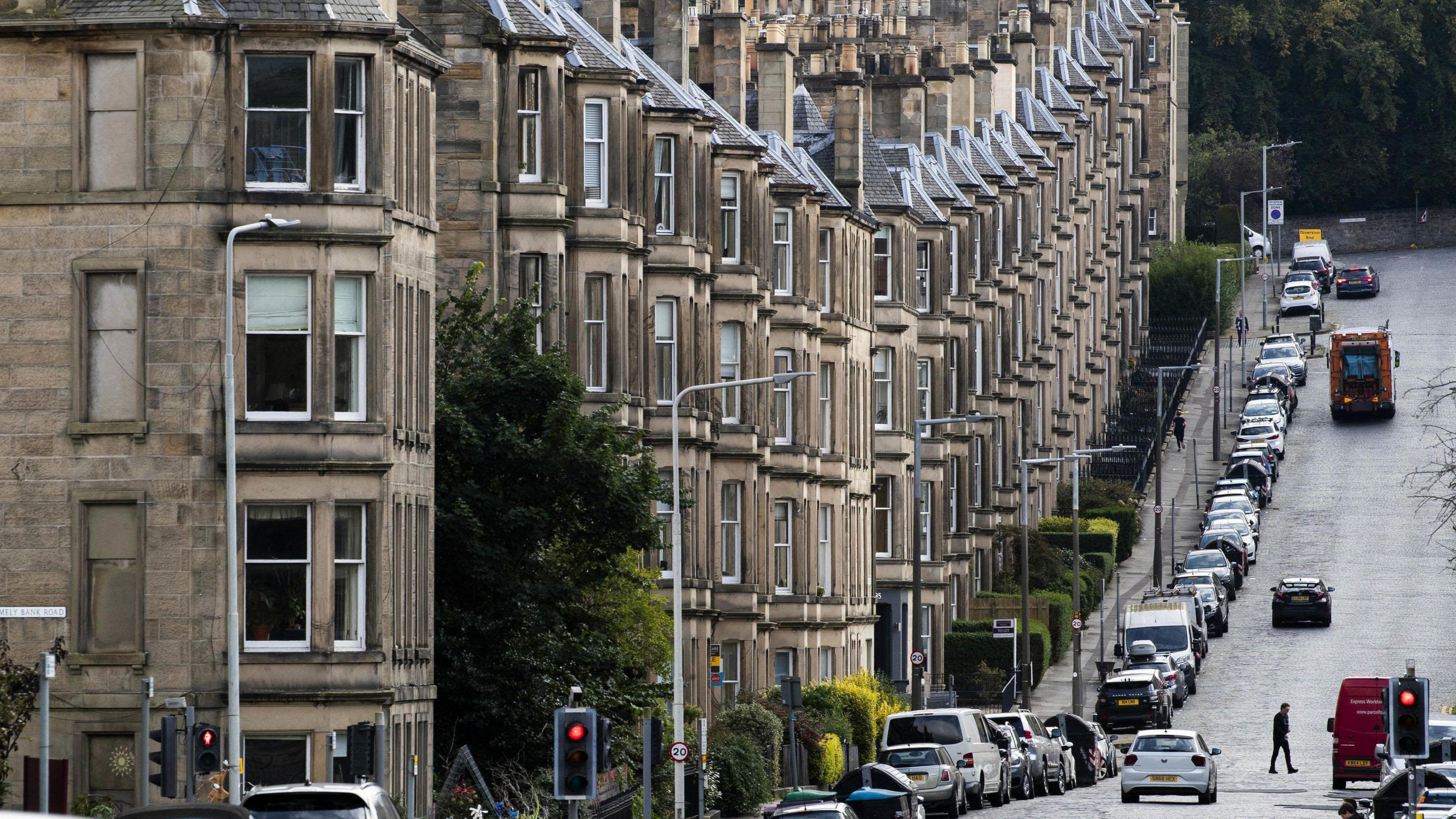Short-term let policy ruled unlawful for second time

The court ruled short-term let legislation was "unlawful"
- Published
A control area covering Airbnb-style lets in Edinburgh has been ruled "unlawful" for a second time.
Lord Braid said this aspect of City of Edinburgh Council's attempt at regulating short-term lets (STL) was "unfair and illogical".
Landlords took legal action against the local authority over retrospective permission required for accommodation.
City of Edinburgh Council said it would consider its next steps following the ruling.
The STL control area rules came into force on 5 September 2022, meaning property owners leasing their homes to visitors before that date would have apply for planning permission to change them to commercial premises.
However, landlords Iain Muirhead and Dickins Edinburgh Ltd argued that policy violated existing legislation.
Edinburgh Council amends 'unlawful' short-term lets plan
- Published4 August 2023
Edinburgh short-term lets plan ruled unlawful
- Published8 June 2023
During the judicial review at the Court of Session, they argued council guidance could only apply to lets which started operating after that date.
In a judgement published on Friday, Lord Braid agreed, stating the planning application "actively discourages" anyone from applying who does not have planning permission or an application in the pipeline, despite this not being required in every case.
'Unfair and illogical'
He cited the hypothetical example of two STL operators - one of which had a certificate of lawful use before the cut off date and the other who did not.
He said that an operator who had permission to run a STL for several years before the deadline would have to reapply for their licence.
However, that could then be rejected under the new legislation, which Lord Braid said would "deprive thousands of landlords of compensation".
Meanwhile, an STL operator leasing through a site such as Airbnb could apply after the cut-off - having never gained permission before - and have it approved.
Lord Braid branded that "not only unfair, but illogical".
The council was given power to impose the control area - the first of its kind in Scotland - by the Scottish government.
The policy was introduced amid concern over the spread of Airbnb- style properties across the city and impact on available housing stock for permanent residents.
Neighbours had also linked the rise in STL's to an increase in anti-social behaviour.
'Onerous and oppressive'
A separate ruling from the Court of Session in June found the legislation to be "onerous and oppressive".
The legislation was amended as a result.
The council's planning convener, James Dalgleish, said the local authority would consider its next steps following the ruling.
He said: “It’s important to point out that, following today’s ruling, residential properties that began being used as STLs after the control area came into force on 5 September 2022 still require planning permission.
"Those that began before that date may still need it and will be considered on a case-by-case basis.”